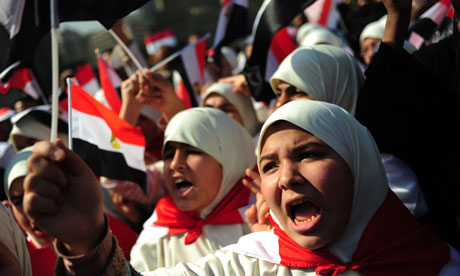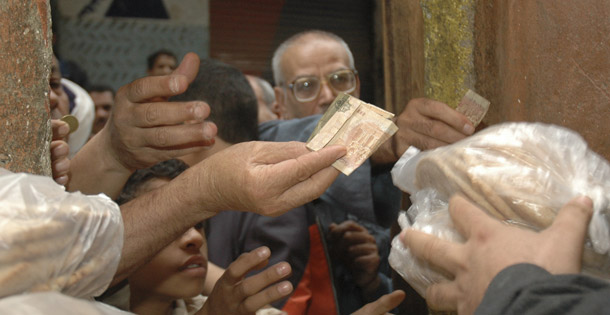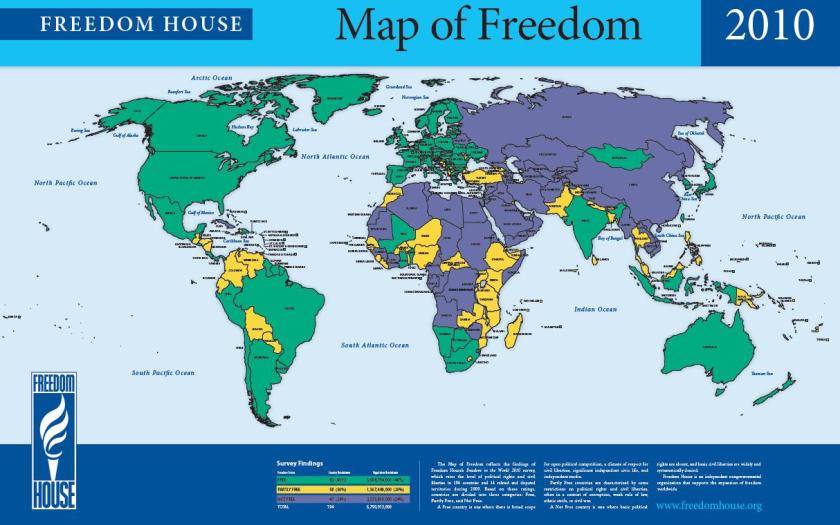In our IS210 class, we’ve been assessing nondemocratic regimes. I had my students read an article by M. Steven Fish, published in World Politics in 2002, titled “Islam and Authoritarianism.” In it, the author notes the striking empirical finding that a majority of Arab Muslim countries had nondemocratic regimes, even after controlling for potentially confounding factors such as oil wealth, level of political violence, poverty, etc. Fish asks what it is about Islam that is linked to authoritarianism. Or, to put it another way, he searches for the causal mechanism lining Islam and regime type. He tentatively finds it in the status of women in contemporary Muslim societies.
Nothing could be less heartening to democratic idealists than the notion that a particular religion is inimical to democracy. Religious traditions are usually constants within societies; they are variables only
across societies. Societies usually are “stuck” with their religious traditions and the social and psychological orientations they encode and reproduce. Yet religious practices and the salience of particular beliefs can change. Even if Muslim countries are more male dominated in some respects than non-Muslim countries, there is no logical reason why such a state of affairs must be immutable. Rigid segregation according to sex and male domination does not have a firm scriptural basis. The Koran provides no justification whatsoever for practices such as female genital mutilation and it condemns all infanticide as a heinous sin, even if it is motivated by a fear of want (17:31; 81:1–14). Much of the Koran’s instruction on marriage, divorce, and other aspects of relations between the sexes (for example, 2:222–41; 4:3; 4:128; 33:1–5; 58:1–4) is more liberal than the sharia (religious law) as practiced in some modern-day Muslim societies. It is therefore as dubious to try to locate the sources of social practice and order in scripture in Islamic settings as it is to try to locate them there in Christian and Jewish settings, because as with all holy injunction based on sacred text, interpretive traditions are powerful and ultimately determine practice. The status of women in Muslim societies is thus both paradoxical and mutable.At the present time, however, the evidence shows that Muslim countries are markedly more authoritarian than non-Muslim societies, even when one controls for other potentially influential factors; and the station of women, more than other factors that predominate in Western thinking about religious systems and politics, links Islam and the democratic deficit.
What do the recent upheavals in the Muslim-majority states of north Africa and the Middle East portend not only for democracy but for the status of women in these societies. CBC Radio’s “the Current” program set out to try to answer that question in a show dedicated to “women and political upheaval.” Here’s a description of the women interviewed on that evening’s show:
We started this segment with a clip from Mona Seif. She was heavily involved in the protests that brought down former Egyptian President Hosni Mubarak. And in the days leading up to his resignation, she told us she really believed the revolt would lead to a significant improvement in the lives of Egyptian women.
But since then, there have been reports that the situation for Egyptian women has regressed to the way it used to be. So we checked in again with Mona Seif. She’s still in Tahrir Square. But she’s feeling a little less optimistic.
Women have often played leading roles in pushing for change in the Arab and Muslim worlds. But when the dust settles, the gains they think they have made are often elusive. For their thoughts on why that is and whether things may be different this time … we were joined by three women who have spent decades trying to improve the position of women in their societies.
Before the Iranian revolution, Mahnaz Afkhami was Iran’s Minister for Women’s Affairs. She’s now the Founder and President of the Women’s Learning Partnership. She was in Washington, D.C.
Asma Khader is a former Jordanian minister of culture. She’s now the Secretary General of the Jordanian National Commission for Women. She was in Amman, Jordan.
And Leila Ahmed is an Egyptian-born professor at Harvard University’s Divinity School. Her research focuses on women in Islam. And her book, The Quiet Revolution: The Veil’s Resurgence From the Middle East to America will be published next month. She was in Cambridge, Massachusetts.






You must be logged in to post a comment.